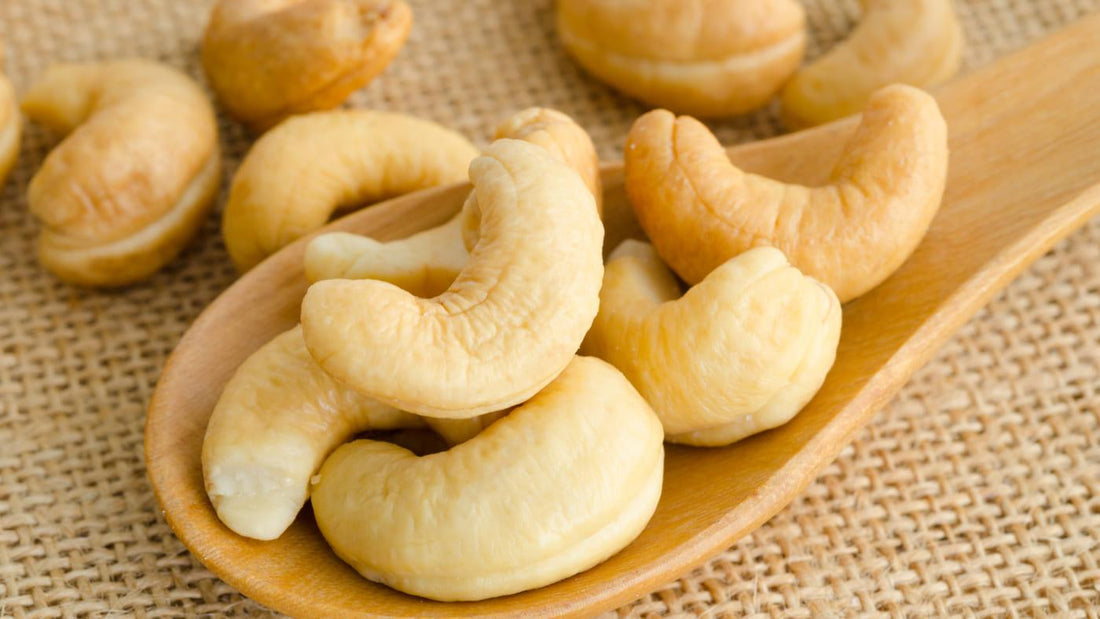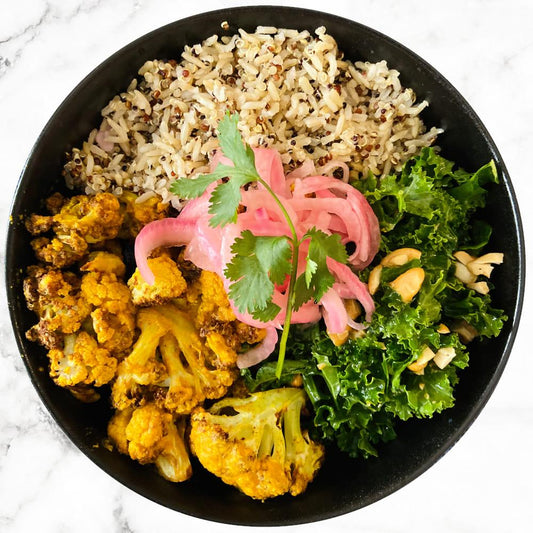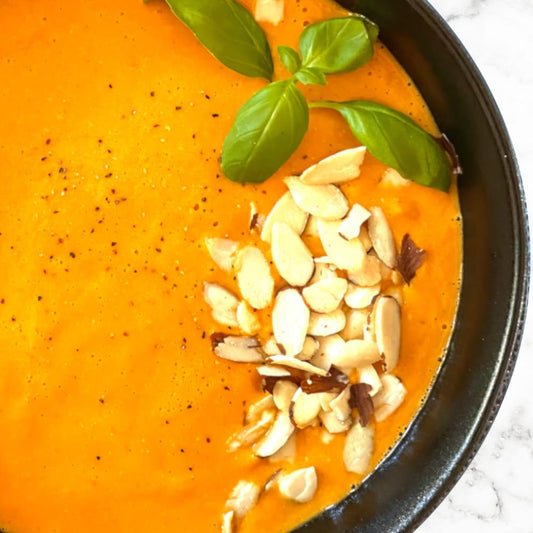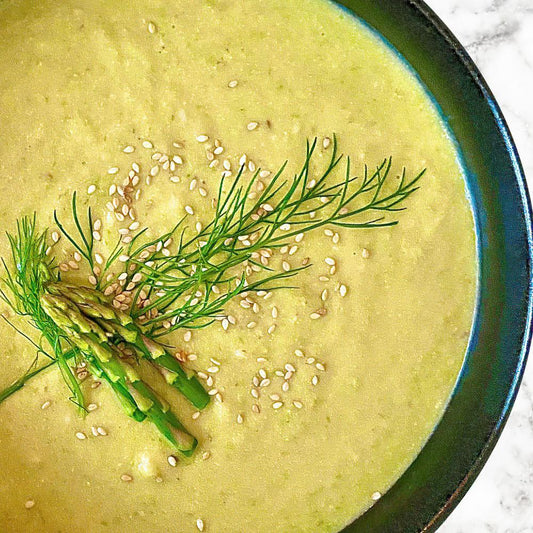This superfood commonly believed to be a nut is technically something called a ‘drupe’ seed. Drupes are fruits with a shell containing a seed. So, if you look at a cashew plant, you’ll see a red or orange apple-like fruit with a cashew-shaped shell growing out of the bottom like a tail.
Open the shell and you’ll find a soft, sweet cashew!

That is, of course, once you remove the irritant that naturally occurs between the shells. Eating this produces painful blisters in the mouth. Capuchin monkeys learned to remove the irritant using stone tools. It is believed that humans may have learned to process cashews by watching the technique of capuchins!
Cashews are native to Brazil and were given the name ‘acajou’ by the Tupi Indians. This word was eventually changed to ‘caju’ in Portuguese, and ‘cashew’ in English.
Europeans discovered the cashew for themselves in 1558 and transported the plant to Europe, India, and Africa. Today, cashews are primarily harvested in Brazil and India. They are a staple in South and Southeast Asian cuisines and are a featured ingredient in southern Indian dishes.
For those in the West, cashews are more commonly consumed as a healthy, protein-packed snack or as a meat alternative for vegetarians and vegans.
Cashews provide you with the same amount of protein as an equivalent portion of meat!
They also are the perfect ingredient for dairy alternatives, resulting in the rise in popularity of faux dairy products such as cashew milk, cashew cheese, and even cashew sour cream.
Cashews are full of essential vitamins and minerals, making them a superfood you don’t want to pass up. Keep reading to find out how adding more cashews to your diet can benefit you and your health!
The Top Health Benefits of Cashews

Cashews improve heart health
Cashews are an amazing source of unsaturated fats. Just a one-ounce serving of cashews provides you with 12 grams of unsaturated fat. This type of fat, contrary to popular belief, goes hand in hand with good heart health.
Unsaturated fats boost good cholesterol and lower bad cholesterol, reducing your risk of heart disease and premature death, and improving the health of your heart overall.
Cashews help you sleep
Crunchy nuts such as walnuts, almonds, and cashews are known to increase melatonin production in the body and improve your quality of sleep. That’s because of the high magnesium content in nuts.
Besides helping combat migraines, lower blood pressure, and regulate muscle contractions, magnesium is also a great sleep aid. Eating more cashews throughout the day can calm down nerve activity in the mind and body, helping you relax and fall asleep.
Cashews strengthen your bones
The magnesium in cashews plays an important role in the formation of strong bones, as well. Copper, another mineral found in cashews, also helps with bone formation and improves bone density.
Without magnesium or copper, you have an increased risk of osteoporosis, joint dysfunction, and weak body tissues. Luckily, just one ounce of cashews contains 83 mg of magnesium and 622 micrograms of copper!
Buying Cashews: What to Look For

When you go to the grocery store looking for cashews, you want to make sure that what you buy is high quality. Most people have an easy time figuring out if bananas are ripe, or cabbage is past its prime, but when it comes to cashews, identifying the best from the worst can be a bit tricky.
The first thing to look out for is size. Fresh cashews are smooth and large. If they look too wrinkled, they were most likely poorly harvested or are beginning to go bad.
Next, look at the color. Whether you’re buying roasted cashews or the raw variety, a golden brown hue will signify that the nuts are more flavorful than a paler hue. Roasted cashews that are very dark brown were likely roasted in fatty oil and should be avoided.
Finally, if you’re able to taste the cashews before buying them, look out for a sweet, creamy flavor. Texture-wise, the cashew should be relatively crunchy. Don’t waste your money on cashews with a fishy taste or a too-soft texture. These are signs of a low-quality nut.
It’s a common misconception that nuts can’t go bad. So, people decide to leave nuts sitting out on the counter, not realizing that the nuts’ high-fat content causes them to turn rancid rather quickly if not stored properly.
To best store, your cashews put them in an air-tight container in the refrigerator. They’ll last up to 6 months. To keep them fresher for longer, store them in the freezer.
Cooking with Cashews

Besides eating cashews raw or roasted as a quick and healthy snack, cashews also lend themselves to dozens of delicious meals, toppings, spreads, and even drinks.
For a healthier, family-friendly alternative to peanut butter, give cashew butter a try. It only contains half the fat!
Just lightly toast raw cashews in the oven for 15 minutes, then blend in a food processor for 10 minutes, or until slightly creamy. Add in 2 teaspoons of coconut oil and continue mixing until thick.

Cashews can also be used to create an amazing, dairy-free milk alternative. Soak 1 cup of cashews in a jar overnight. Drain and rinse them, then blend them in a food processor. Pour in 4 cups of water and blend until fully combined and creamy.
If you want to find a way to incorporate cashews into your dinner plans, try cashew chicken. This is a classic Chinese-American stir fry dish that can be made by adding roasted cashews to any chicken stir fry dish of your choosing. The nuts add a savory crunch that pairs perfectly with tender chicken and stir-fried vegetables.
No matter how you choose to incorporate cashews into your diet, you can rest easy knowing that raw, baked, roasted, or blended, cashews are rich in nutrients no matter how you serve them up!





